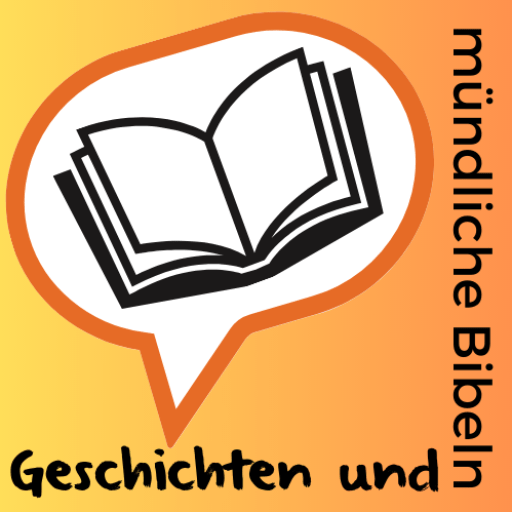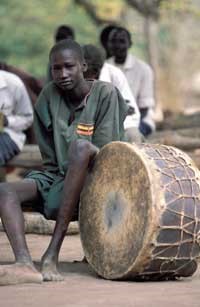On my journey of discovery into the world of orality, I was very challenged by the following article from 2002:
SOUTHERN SUDAN (BP)--Eighteen men and women graduated with a certificate from Southwestern B.-Theological Seminary recently, without ever opening a book or writing a single paper.
Deep in the heart of southern Sudan, a Bible school teaches local church leaders without the use of textbooks, notebooks or pencils. The only tools students need are ears for listening, eyes for seeing and a voice for telling. International Mission Board missionaries and a Kenya missionary teach everything orally
"The highest level among the students is grade five," says Tom Ogalo, Kenyan missionary. "Many people in this area cannot read. Reading is also not the way they gather information. Their history is passed down orally from generation to generation. So it just makes sense for us to start doing theological education orally. Educating Christians in a society that does not read is a serious challenge for missionaries. The Southwestern B. Missionary in Fort Worth, Texas, is working with the IMB to find ways to equip oral learners with biblical truths. Many missionaries around the world use the chronological Bible study introduced by New Tribes Mission. This concept teaches by telling Bible stories in chronological order. Each story is repeated several times and each story relates to the next. This method is used for evangelism and discipleship.
"As the good news successfully spread in oral cultures through this method, missionaries were faced with the task and challenge of how to equip these new believers in the churches they planted." Said Grant Lovejoy, professor at the seminary. "We found that many of these oral learners were not qualified to attend local seminaries. Some of them couldn't even benefit from distance learning theological courses because of their oral culture." Says Lovejoy. "The whole approach is designed to equip people whose ways of learning and communicating are oral. The training does not use lectures, notes, textbooks, workbooks or any of the other learning activities normally associated with Western education. The curriculum and methodology of instruction are designed specifically for people who will be living and working in cultures where reading and writing are rarely practiced. The certificate from Southwestern Baptist Seminary helps bring credibility and standards to those who complete the Oral Bible School. Ogalo and IMB missionary Tom Reed learned this traditional method of teaching from the South Sudanese.
After the class has gathered in the courtyard of the largest mud house in the village, the lesson begins with a review of the last lesson. They talk about various aspects of the story, its meaning and its application in everyday life before moving on to the next lesson. Ogalo then tells a story from the letters of St. Paul. "This school requires a lot of memorization." Ogalo explains. "If you tell the story wrong, the students will learn it wrong and they will tell it wrong to their church members." After the story, Ogalo and Reed ask questions and begin a discussion about theology and church leadership. Reed guides the students to answer questions through the richness of the stories they have already learned. Each student has learned more than 200 Bible stories. Students are given oral tests every week and a comprehensive oral exam every three months. They learn evangelism, discipleship, church planting and leadership, counseling and ethical issues in the light of the Bible.
"It's all about repetition. These people have to repeat every single thing, it's not possible for them to read or refresh their memory," Reed explains. "That's why we have a lot of culturally appropriate exercises. In each lesson, students develop a drama and a song to illustrate the biblical truths." Students often do four or five songs per story. People from distant villages walk to the school every Friday night to learn the new songs for the week. While they stay up until the early morning, they sing the new songs and go over old songs as well.
Ogalo smiles as he hears the songs being practiced and notes how much the village has changed in the last three years.
"When we first got here, no one came to this village or even lived here. There was no water," he said. "Now there is a borehole and this is the gathering spot for people. Not just because of the borehole, but because of the seminary. God's Word is spreading and people are embracing the stories."
One student said that when he returns to his village to tell the stories he learns in school, the response is better than ever. "They tell me it is the first time they have understood the Bible and what it means to be a Christian," he said.
Most of the students in the program are pastors in their home villages. The school's guidelines require them to plant new churches. Students tell the stories and lead discussions, they perform a drama and teach new songs and dances. Reed says the response from the villagers has been amazing. "We go so far into the bush that people wear leaves as clothes. It's amazing to see how people respond to the students' sermons and songs. This oral way of preaching is a way of reaching people who are traditionally Bushmen on the African continent. "
www.bpnews.net/bpnews.asp?id=13996, published here with permission


Recent Comments